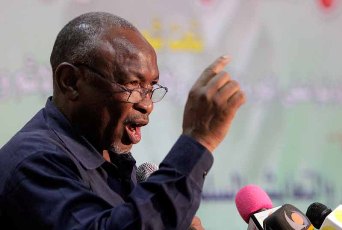Security breakdown in north Darfur prompts authorities to take serious measures
September 5, 2012 (KHARTOUM) – The governor of North Darfur State in western Sudan has declared a state of emergency and appointed a military ruler in two of the state’s localities, where weeks of ethnically motivated revenge attacks involving regular and irregular forces increased dramatically in the last two days, risking total absence of law and order in the volatile region.

The two localities which lie 120 kilometers northwest of El Fashir have been the scene of a series of revenge attacks triggered by the assassination in broad daylight of Al-Waha district commissioner and his driver by unknown gunmen in the local marketplace of Kutum on 1 August, and culminated in the attempted assassination of Kutum district commissioner on Monday. The failed assassination attempt has claimed the lives of five policemen and two citizens as well as the injury of 11 others.
The slaying of Al-Waha’s commissioner, who happened to be one of the chieftains of Al-Zayidya Arab tribal group, immediately spawned a wave of revenge attacks by Arab tribal militiamen known as Janjaweed who accused members of the African ethnic group Al-Zagawa of being behind the assassination. The attacks mainly targeted Kassab camp for Internally Displaced Persons (IDPs), leading to the displacement of 25,000 and death of 21 people, according to local NGOs.
Governor Kibir revealed that the security measures taken in the two areas include the declaration of an emergency state, closure of all schools, withdrawal of judicial authorities and withdrawal of the investigation committee formed by the authorities to probe the assassination “until the situation stabilizes”.
The measures also include withdrawal of integrated police units from Kutum, withdrawal of the central reserves police forces from Kutum and relocation of their headquarters to Damrat Al-Shaikh area, and reinforcing Brigade 22 of the Sudanese Armed Forces (SAF) in Kutum with more troops in order to enable it to bring the situation under control.
Kibir added that among the measures is the appointment of Brig-Gen Mohammed Kamal Mohammed Nur to be the commander-in-chief of Brigade 22 and to “temporarily supervise administrative and executive management of the two localities.”
In his first resolution under the state of emergency, Kibir imposed a ban on the carrying of arms “unless dictated by necessities” and announced a daily curfew in Kutum from 6 pm to 7 am local time “until further notice.”
Revealing details about the attempted assassination of the Kutum district commissioner, the governor said that the incident occurred at 3:30 pm local time when the commissioner’s convoy was intercepted by two gunmen who opened fire on the vehicle carrying the official, which led to the death of three policemen and various injuries to five others.
Kibir said that the two assailants and three others who were protecting them had fled the scene to an unknown destination after exchanging more fire with one of the commissioner’s security details. He also disclosed that two more policemen were killed in downtown Kutum on Tuesday when they were shot by a sniper.
The recent upsurge of violence particularly in north and south Darfur indicates that Sudan’s western region remains largely volatile despite the relative lull in fighting between government forces and the rebel groups who refused to join a peace agreement signed between the government and the former rebel Liberation and Justice Movement (LJM).
The current conflict in Darfur started in 2003 when rebels associated with African ethnic groups took up arms against the government accusing it of marginalizing the region.
In response, government forces backed by Janjaweed militias carried out a harsh counterinsurgency campaign that resulted in the death of 300,000 people and displacement of more than 2.7 million, according to UN figures following the peak of the conflict in 2003 and 2004.
(ST)
